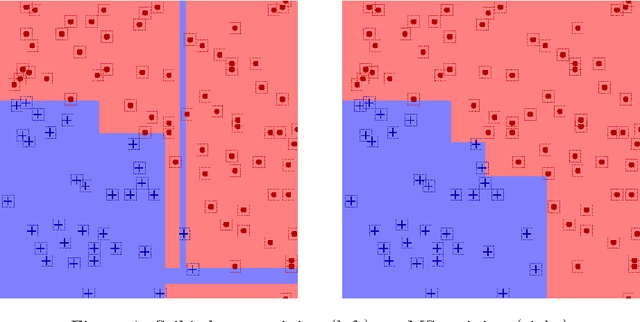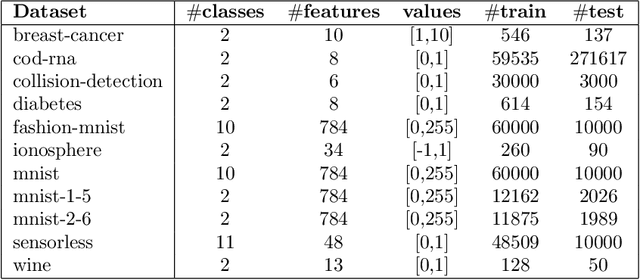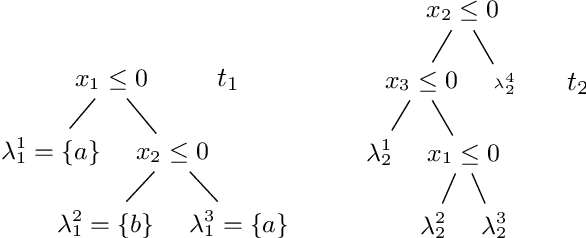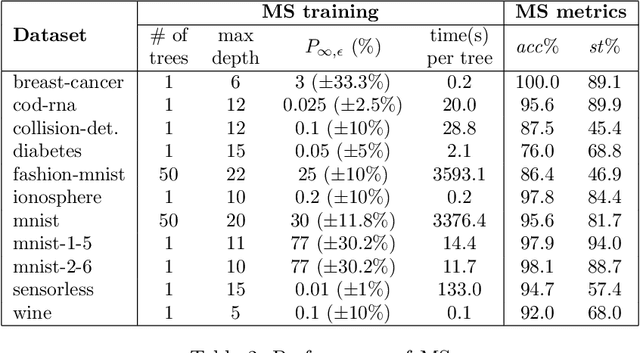Genetic Adversarial Training of Decision Trees
Paper and Code
Dec 21, 2020



We put forward a novel learning methodology for ensembles of decision trees based on a genetic algorithm which is able to train a decision tree for maximizing both its accuracy and its robustness to adversarial perturbations. This learning algorithm internally leverages a complete formal verification technique for robustness properties of decision trees based on abstract interpretation, a well known static program analysis technique. We implemented this genetic adversarial training algorithm in a tool called Meta-Silvae (MS) and we experimentally evaluated it on some reference datasets used in adversarial training. The experimental results show that MS is able to train robust models that compete with and often improve on the current state-of-the-art of adversarial training of decision trees while being much more compact and therefore interpretable and efficient tree models.
 Add to Chrome
Add to Chrome Add to Firefox
Add to Firefox Add to Edge
Add to Edge